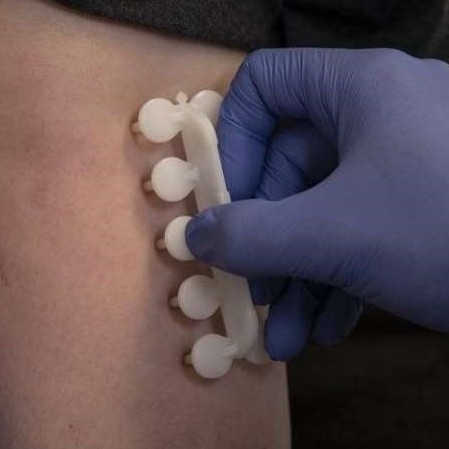SAN ANTONIO, Jan. 14, 2014 /PRNewswire/ — According to the results of a recent United Allergy Services survey, two-thirds (68 percent) of U.S. seasonal/perennial allergy sufferers would rather seek treatment for their allergy symptoms from a primary care physician (PCP) than an allergist. Allergies are the fifth leading chronic disease in the U.S. among all agesi, and, with repeated exposure to allergens, many patients can develop allergic asthma. The Centers for Disease Control and Prevention (CDC) estimates that today, approximately 50 million Americans suffer from allergies and allergic asthma, and the prevalence is increasing.
The results of the survey, conducted online between November 12-14, 2013 by Harris Interactive on behalf of United Allergy Services among 2,047 adults age 18 and older, provide key insights into how patients feel about options available for diagnosing and treating allergies.
Survey findings document strong public desire to receive treatment from primary care physicians compounded by demand for treatment options that can eliminate, rather than mask, ongoing allergy symptoms.
“Often, allergy sufferers battle symptoms without knowing the exact cause of their reactions. As a result, undiagnosed allergies are treated with over-the-counter (OTC) medications that only mask the larger issue-allergic reaction,” said Frederick M. Schaffer, M.D., chief medical officer of United Allergy Services. “Immunotherapy (allergy shots), the only treatment proven to address the underlying cause of allergic reactions and provide long-lasting relief, has historically lied exclusively in the hands of allergy and immunology specialty providers.”
Representative findings include:
- Two-thirds of allergy sufferers (68 percent) say they would rather see a PCP for their allergy symptoms than an allergist.
- Among all allergy sufferers, almost nine in 10 (88 percent) agree that if there was a treatment that would stop allergies and not just treat the symptoms they would try it.
- Among allergy sufferers who do not currently see a PCP, 84 percent say they would see a PCP if he/she could diagnose their allergies and provide a treatment that would eliminate ongoing symptoms.
The survey also found that allergy sufferers almost universally unite in their willingness to try a treatment for allergies that eliminates ongoing symptoms at home:
- Nine in 10 allergy sufferers (90 percent) agree that if there was a way to safely and effectively treat the cause of their allergies (not just mask the symptoms) at home (without the use of steroids or OTC medications) they would try it.
“These survey results suggest a significant patient interest in allergy services at the primary care physician office and home immunotherapy at a time when many traditionally specialty services are being centralized within the primary care platform,” said Nicolas Hollis, president and chief executive officer of United Allergy Services. “The revelation that a majority of patients would prefer to receive effective allergy treatments from their primary provider underscores the need for additional primary care service offerings focused on treating the whole patient.”
Survey Methodology
This survey was conducted online within the United States by Harris Interactive on behalf of United Allergy Services between November 12-14, 2013 among 2,047 adults aged 18 and older, of who 1,325 suffer from any seasonal or perennial allergy symptoms. Respondents for this online survey were selected from among those who have agreed to participate in Harris Interactive surveys. As such, no estimates of theoretical sampling error can be calculated. For complete survey methodology, including weighting variables, please contact Schwartz MSL at unitedallergy@schwartzmsl.com.
About United Allergy Services
United Allergy Services ® (UAS) brings effective and convenient allergy testing and immunotherapy to primary care physicians; pulmonologists; ENT physicians; pediatricians; internal medicine physicians; and healthcare systems that treat the vast majority of patients with seasonal and perennial allergies. UAS’ complete service line features in-office UAS Certified Clinical Allergy Specialist staffing and training; quality assurance and compliance; and supply and inventory management. By collaborating with physicians to safely administer allergy testing and shots, UAS has assisted the expansion of access to effective allergy care for thousands of patients that suffer from seasonal and perennial allergies.
You may also be interested in . . .
Allergy Services for Primary Care Physicians: Expanding Access to Long-Term Allergy Relief
Allergies affect more than 100 million people each year. Yet despite their widespread impact, allergies often go untreated due to the scarcity of…
The Primary Care Practice Crisis: It’s Time to Play Offense
In an article published in Medical Economics, Brad J. Scoggins, FO, DAAP contends that it’s not enough for medical practices to counter adverse market…
How allergy care remains both accessible and essential during COVID
The COVID-19 pandemic continues to impact the entire country. Its effects have been uniquely felt in the healthcare industry, as providers reshape how…



